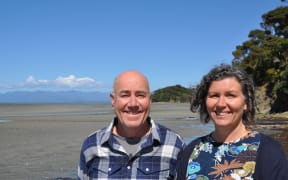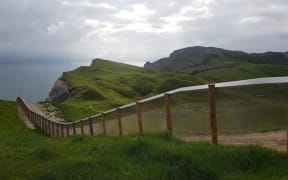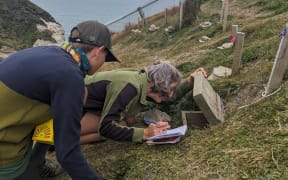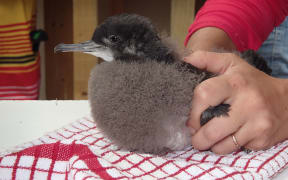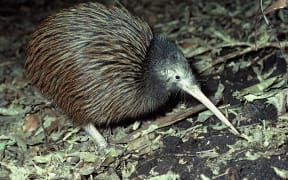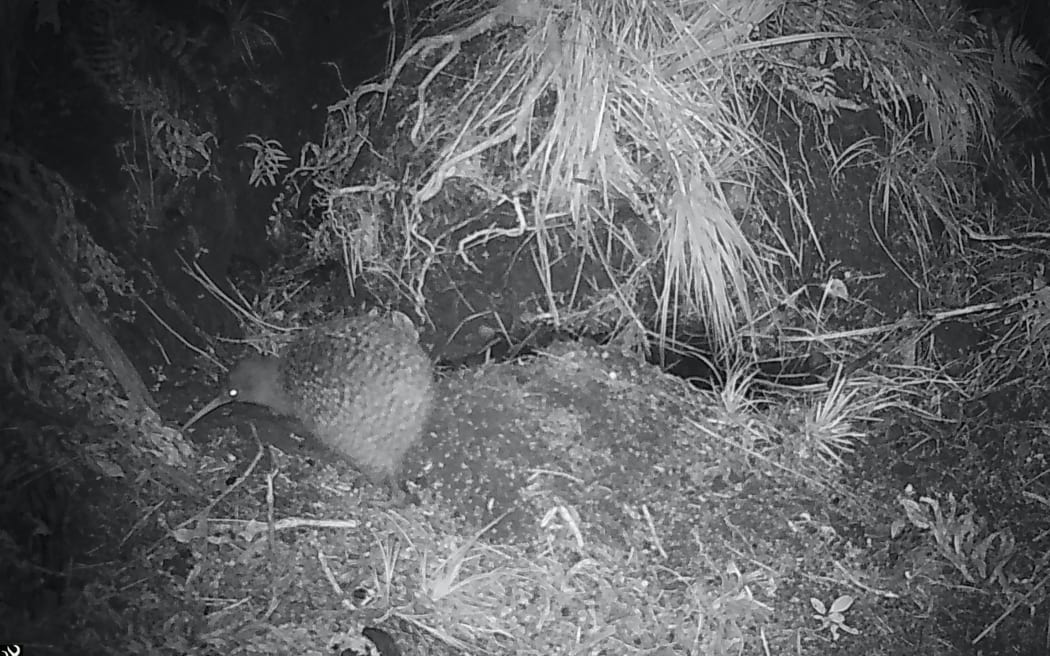
A conservation worker was shocked to see the kiwi as the nearest population is some distance away. Photo: Supplied / Pest Free Onetahua
A conservation worker reviewing camera footage for feral pigs in Golden Bay did a "triple take" when a great spotted kiwi appeared on his screen.
"I was a little bit shocked when - after passing through a few hundreds of images of pigs and stoats and rats - a kiwi popped out."
Bert Harris said the the discovery of the distinctive bird, clearly visible in footage taken near Pūponga in Golden Bay, blew his mind given the closest known population of kiwi were some distance away in the Kahurangi National Park.
Harris is a field officer for Pest Free Onetahua, a pest eradication project that covers Farewell Spit (Onetahua) and the land south to Whanganui Inlet, including the Kaihoka Scenic Reserve and Pakawau Forest.
He had set up a network of cameras around the base of Farewell Spit to gauge the size of the feral pig population, ahead of a planned hunt to finally eradicate them from the spit itself.
The footage mainly captured pest species and the odd blackbird or thrush. Weka were sometimes seen moving through the area, and a lone fernbird (mātātā) had been detected, along with some little penguins (kororā) burrows, but this was the first time a kiwi had been spotted.
A stoat was detected by the same camera three minutes after the kiwi was seen, sniffing around where it had been.
"There might be a local resident population of kiwi; that's probably the most optimistic take on it. God knows where it came from but if it has spread out from a local population then it's vulnerable, probably young and it is not just stoats out there, wild cats show up quite regularly on those cameras, and dogs, as it is a popular pig hunting area."
Great spotted kiwi (roroa) are the largest of the kiwi species and are only found in the top half of the South Island, mainly in mountainous habitats. Despite their size, roroa chicks are still vulnerable to stoats and dogs.
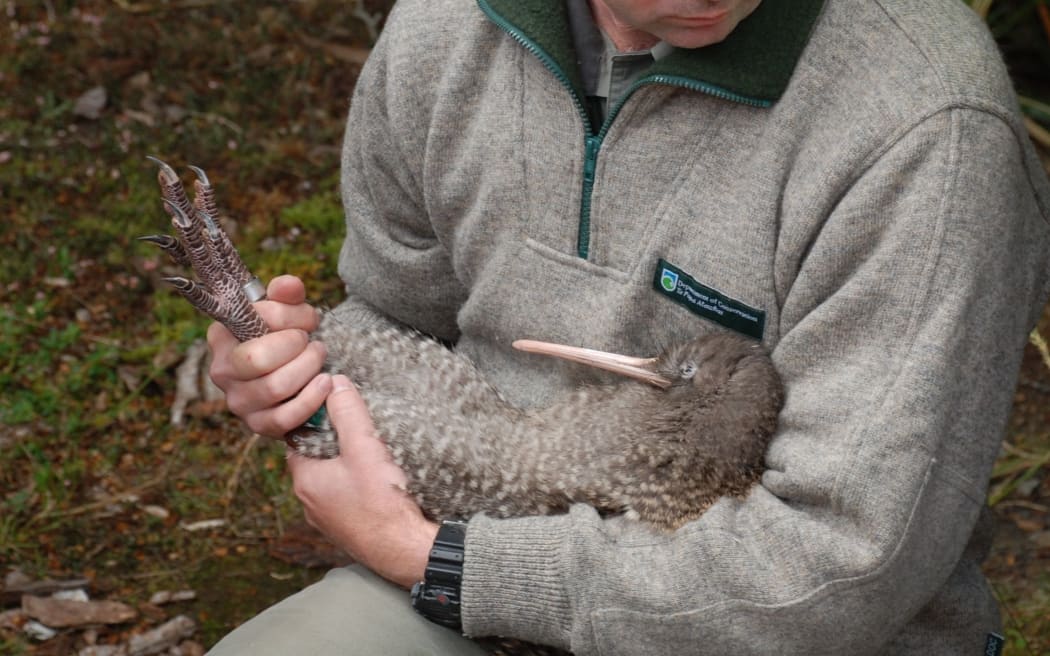
A great spotted kiwi. File pic Photo: Supplied
Department of Conservation Golden Bay operations manager Ross Trotter said great spotted kiwi were found in various parts of the Kahurangi National Park, with some in the north-west Nelson Forest Park. It is the only kiwi species found in Golden Bay.
The nearest known population was in the Mt Stevens area of the national park, around 40km away from where this bird was sighted. A great spotted kiwi had also been sighted in the Kaituna Track area, around 25km away.
Trotter said the sighting was significant and it would be working with Pest Free Onetahua to establish if there were other kiwi in the area.
"Acoustic recorders will be put out to record bird calls, including any kiwi calls, to help find this one, and others in the wider area."
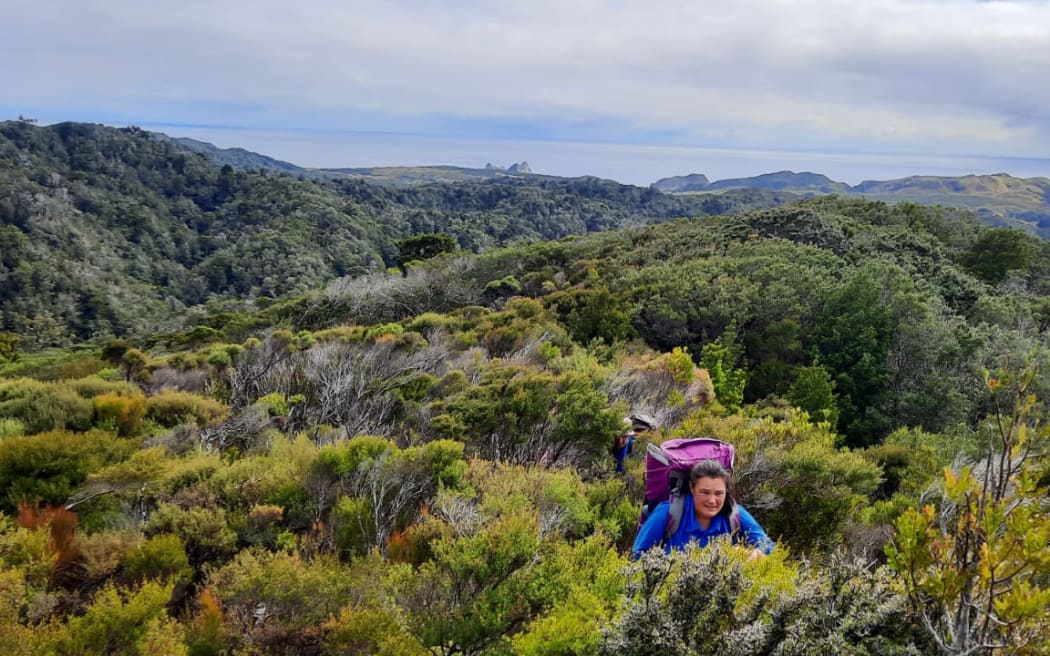
Pest Free Onetahua staff in the field. Photo: Supplied / Pest Free Onetahua
He said the efforts of local conservation groups Pest Free Onetahua and Health Post Nature Trust were helping to protect native species and increase their numbers.
Project lead Brian Alder said the remarkable discovery was a "game changer" given there weren't many significant land-based bird species in the area, as it was mostly a habitat for seabirds.
"To have a great spotted kiwi pretty much at sea level, which is unheard of almost... is huge."
He said it would change their approach to conservation in the area.
"It really solidifies the importance of removing all the pests. Now we've got lots more questions; like are there more kiwi here, how did it get here, and what lies undiscovered in this unique region?"
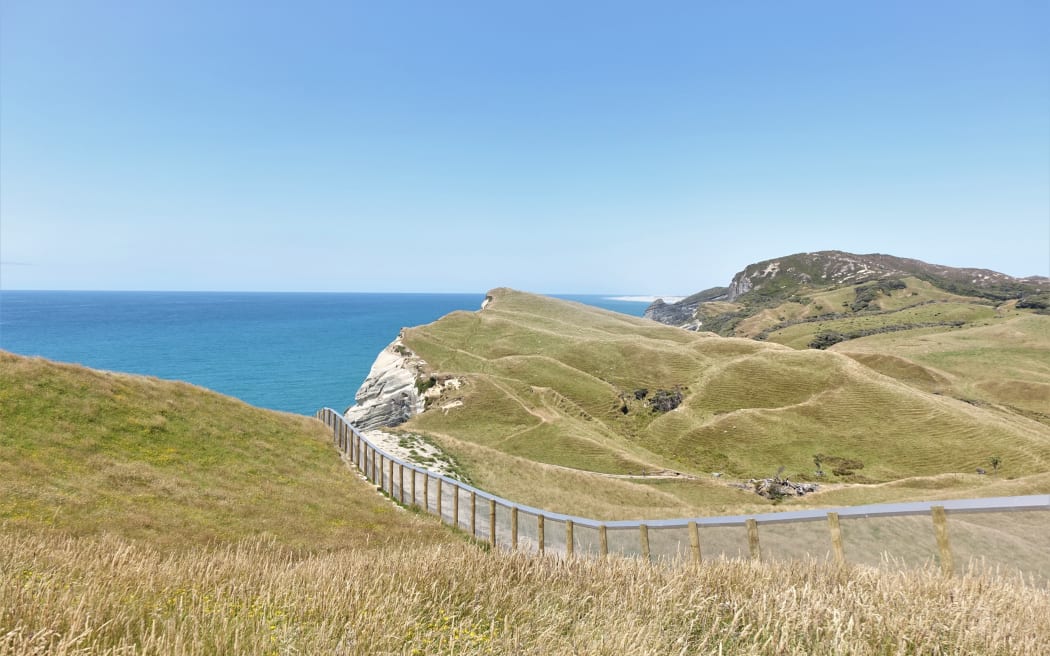
The Cape Farewell sanctuary. Photo: RNZ / Tracy Neal
Manawhenua ki Mohua (an iwi trust representing Ngati Tama, Ngati Rārua and Te Ātiawa) chair Margie Little said news of the kiwi discovery was promising.
"It's just awesome to find a vulnerable tāonga living in this wāhi tapu, it's going to propel us forward on our shared pest free journey."
Health Post Nature Trust's Project team have been undertaking pest control in the region since 2017, with 700 traps in the area aimed at protecting the remnant shearwater colonies along the northern coast of Farewell Spit.
The Wharariki Ecosanctuary was established at Cape Farewell in 2020, after a pest-proof fence was built to better protect local wildlife.

